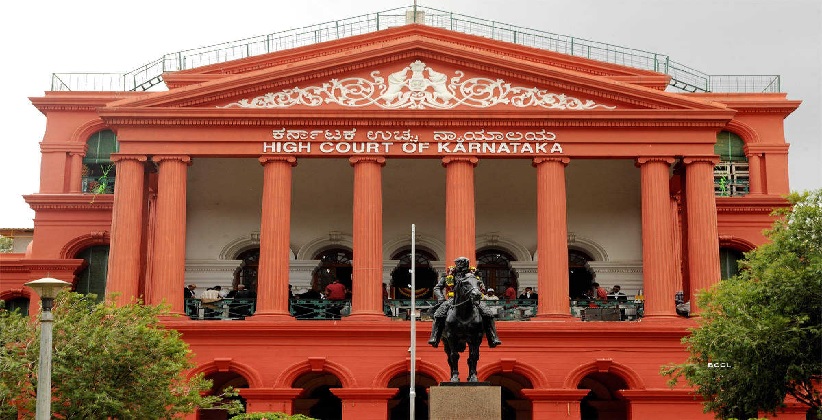The Karnataka High Court on July 8, 2020, expressed the prima facie view that the state govt. orders banning online classes encroached upon Fundamental Right to Life and Education conferred in Article 21 and 21 A of the Indian Constitution.
Prima facie we are of the view that both orders of June 15 and 27, encroached upon fundamental right conferred by Article 21 and 21 A of The Constitution of India, observed a division bench comprising Chief Justice Abhay Srinivas Oka and Justice Natraj Rangaswamy.
The Karnataka High Court in its interim order stated that online classes cannot be banned for students between LKG and Class 5. The High Court stayed the governments orders dated June 15 and June 27, which embargoed online learning on Wednesday. The Karnataka government had earlier in June banned online classes for children up to Class 5, stating that it is awaiting an expert committees report on the same.
The High Court also ordered that schools cannot make online education compulsory and cannot charge extra fees for online classes. Our order should not be construed to mean that students who do not opt for online education should be deprived of their normal education as and when the schools can start education, Chief Justice of Karnataka High Court Abhay Srinivas Oka observed.
A petition was filed in the High Court by Anumita Sharma and several others earlier in June seeking to revoke the ban on online classes. While reading out the interim order, Chief Justice Abhay Srinivas Oka observed that the ban on online learning violates Article 21 of the Constitution of India, which states that the right to education is a fundamental right.
Chief Justice Abhay Srinivas Oka said that the state government would have to make infrastructural arrangements so that students from all sections of the society can attend online classes.
The fact that the state is not able to extend online education to a certain category of schools is not grounds for so-called elite schools to not extend online education to its students. The state government will have to take appropriate steps to create infrastructure and facility so that online education can be extended to students in rural areas, Chief Justice Abhay Srinivas Oka said.
The state government had submitted to the court that online classes were banned as the National Institute of Mental Health and Neuro Sciences had submitted a report, which had discouraged online education of LKG and UKG students. The High Court observed that it is difficult to support the governments decision to ban online education based on NIMHANSs report as the report itself does not call for a ban.
The state government later submitted to the court that the expert committee to study the feasibility of online learning had suggested online classes for students between lower KG and Class 5 but for a limited period. The state government also submitted that Pragyata Guidelines issued by the Union Ministry of Human Resources would have to be followed.
"If said guidelines are read as a whole, they do not intend to put an embargo on online learning, especially when there is a complete ban on opening of schools till July 31, Chief Justice Abhay Srinivas Oka said.
The Bench made it clear that this interim order should not be construed that the schools have the right to make online education compulsory and can charge fees for offering online education. Also, the schools should not deprive students, who cannot opt for online education, the lost education when the schools reopen on a regular basis.






